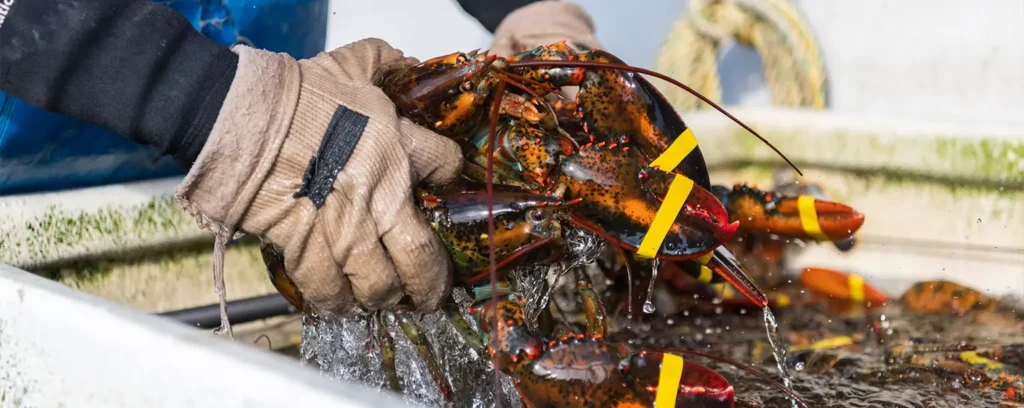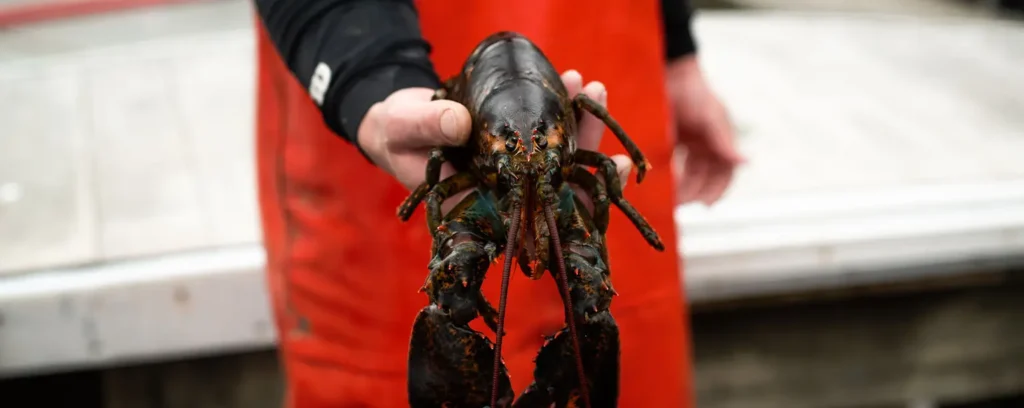
The Legacy of Maine’s Sustainable Fishing Practices
Maine is home to some of the finest lobsters in the world. Whether you’re celebrating an occasion with a lobster dinner out or have shopped with ShopLobster to get premium Maine lobster shipped, alive, directly to your table, you may know how decadent and luxurious Maine lobster can be. This is why it is incredibly important to protect the natural populations of wild Maine lobsters. Though they are still plentiful, their numbers have dwindled in recent years. However, the sustainability of lobsters alone is not the only concern that has prompted conservation and sustainability efforts from organizations like Maine Lobstermen’s Association and the Marine Stewardship Council. These efforts have been put into place to ensure that only lobsters of certain criteria can be harvested, and other marine life or components of the Maine ecosystem go unharmed. Some potential problems include:
- Ocean pollution
- Plastics contamination
- Overfishing
- Unintended bycatch
- Entanglement in fishing gear
At ShopLobster, we are committed to mitigating these problems with sustainable fishing practices and an environmentally friendly approach to lobster fishing. To learn more about our commitment to the Maine marine ecosystems and our partners in this effort, visit the sustainability portion of our website.
Sustainable Practices in Lobster Fishing
One of the most immediate ways to effect change in any industry is to lead by example. In lobster fishing in Maine, much of the regulation is left to the state and other governing bodies. From the sizes of lobsters that can be harvested to the sex and developmental stages that require lobsters to be thrown back, the stipulations are extensive. However, this is a good thing for both the consumer and the environment. While these restrictions may mean that fewer lobsters can be harvested, it also means that only the cream of the crop will make it to a dining room table. Lobsters and the lobster industry operate on a supply and demand system, which means that as lobsters become increasingly protected, the price may continue to go up. Still, the lobsters selected for harvest and cleared of potential environmental dangers are all of the ideal size and maturity to reach the peak of flavor. In other practices, some lobsters are tagged and released to enable the tracking of populations and movement patterns. This allows conservationists and fisheries alike to keep track of and maintain Maine lobster populations. Between all of the industry’s best practices and other sustainability requirements, fisheries can ensure the highest yield throughout the year without overfishing or causing other unintentional issues.
Potential Negative Impacts
Any industry that operates in the local environment contingent on its ecosystem has the possibility of disrupting that ecosystem and causing unforeseen problems for future generations. Still, the good news is that with modern technology and data, we can reduce this potential drastically, allowing for the ideal merging of output and sustainability. For example, one of the most damaging practices from lobster fishing days past was the contamination of the ocean and the marine ecosystem in Maine. From lobster traps that may be left on the seafloor to plastic, garbage, and fishing lines being left to sink or drift, ultimately harming marine life and sea creatures off the coast. This issue has been largely quelled in Maine’s coastal waters thanks to new technology and equipment that works to prevent further garbage buildup or contamination. Take, for example, the new biodegradable lobster traps that will quickly break down over time if lost or left unattended, or lighter lines that cut down on the amount of plastic needed to manufacture a spool. With fewer materials and better fishing practices, the chance of litter ending up accumulating in the ocean around Maine drastically decreases.
Fighting Bycatch and Entanglement
No matter what product is being fished for, bycatch has plagued fishermen for generations. Bycatch is an unfortunate event in which fish and other marine life are trapped or caught when they were not the target of the harvest. This has been a problem in almost every fishing industry, and has been largely publicized when marine mammals and turtles are unintentionally caught in fishing gear. Whether it be drag netting or other harmful practices, it is essential to limit such action to help ensure non-target species can be spared and left largely unimpacted. In the lobster fishing industry, bycatch can be an issue in many ways. First and foremost is bycatch in lobster traps. Sometimes, predatory species will become trapped themselves when attempting to hunt the trapped lobsters; they often die as a result. Another instance can be when using lines and bait to catch lobsters. In these instances, marine life of all kinds can become trapped and tangled in the line, unable to escape. To reduce this, stricter practices have been put into place in Maine and in many other lobster harvesting regions to ensure the marine ecosystem remains rich and vibrant for years to come, ensuring bountiful lobster harvests all the while. Some of these practices include specified locations indicated by coordinates that allow lobster fishing, trap limits set by lobster management zones, and limitations on lobster harvesting, including size and egg-bearing females.
How We Are Helping
At ShopLobster, we and our lobster fishing partners are committed to engage in the most up-to-date and sustainable harvesting practices to ensure bycatch is minimized and ocean debris is created as little as possible. We have also partnered with organizations like Rugged Seas to provide recycled and repurposed products crafted from Maine fishing gear in an attempt to limit our impact on the environment and ecosystem. In addition, by working with independent lobster fishing operations, we can choose with whom we partner to ensure they hold similar values regarding conservation and reducing our environmental impact. Remember, the more sustainable practices and regulations are established today, the longer Maine lobsters can be harvested and distributed to the folks that love it the most, and all at the highest possible quality. To learn more about our commitment to sustainable lobster fishing practices or to explore more of our efforts in detail, visit the Sustainability portion of our website and see just how much care ShopLobster puts into the lobsters shipped to your door.



